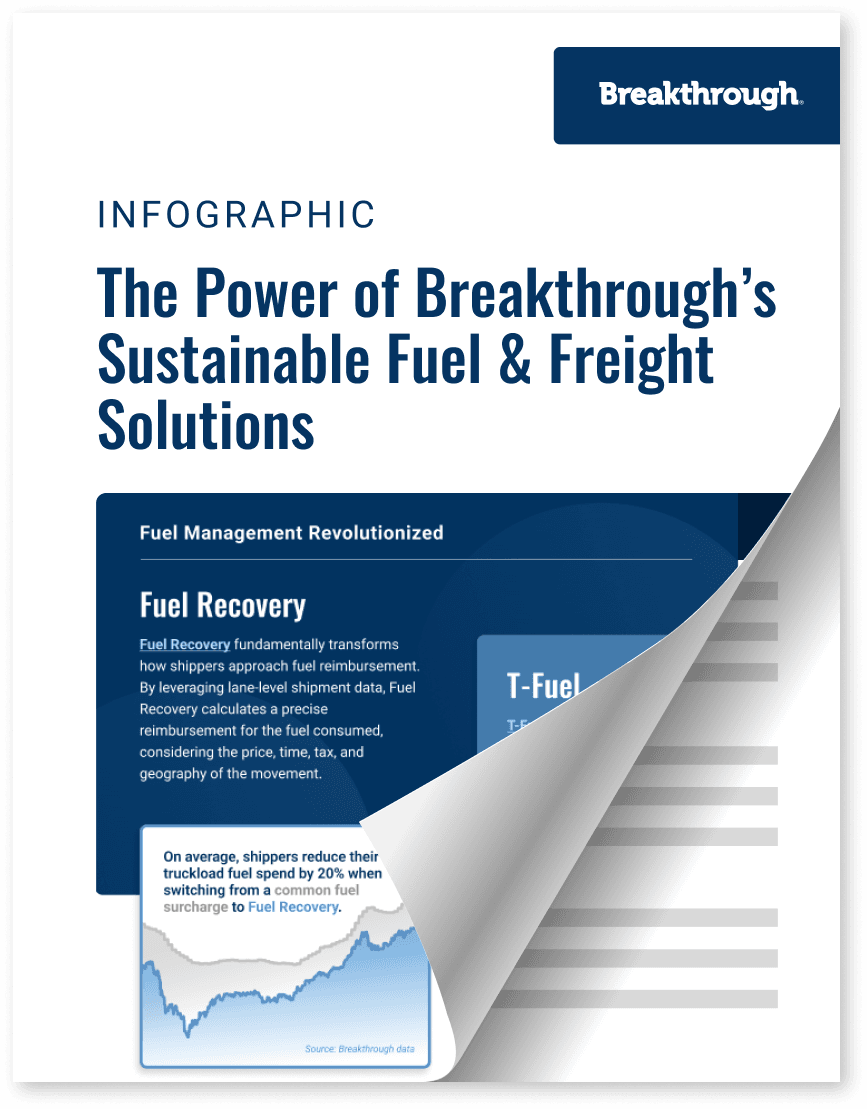The Power of Breakthrough's Sustainable Fuel and Freight Solutions

Freight
3 min read
July 17, 2024
Market Events
4 min read
July 16, 2024
Market Events
3 min read
July 8, 2024

4 min read
February 7, 2019

Share:
As the world begins to make a strategic shift towards more sustainable fuels with a lower sulfur content, several transportation landscapes are beginning to feel the effects that such changes bring, both legislative and economic. A timely example of a nation currently undergoing significant changes in fuel quality and consumption is Mexico, as fuel shortages and new low sulfur mandates add complexity to an already-stressed energy ecosystem.
At the end of 2018, Mexico tentatively affirmed its decision to ban high-sulfur diesel throughout the country and switch to consumption of ultra-low sulfur diesel (ULSD) product exclusively. In the face of fuel shortages from theft and the resulting pipeline closures, however, Mexico’s government is now expected to issue a 6-month exclusion of the new rule, specifically in the Bajio and Central regions.

This delay creates more time for Pemex-operated refineries in these areas to adapt machinery to produce ULSD, and ease fuel-related tensions as the country grapples with pipeline theft and its economic and humanitarian consequences. Despite the delay, some believe that the added demand from Mexico for ULSD will create more volatile price movement and premiums for diesel in the country.
Should the mandate take effect in 2019, Mexico would likely be faced with a strategic decision to either import the extra low-sulfur product they don’t have the capacity to produce, or undergo the capital and time-intensive process of updating refineries to increase said capacity. Both options have their complexities—whether it’s wrestling with the prevailing desire for increased national energy autonomy or upgrading energy infrastructure—and additional uncertainty exists about whether this mandate will create demand-driven price spikes.
To domestically produce large enough quantities of ULSD to meet the new demand created by the mandate, Mexico needs to make substantial alterations to its refining capabilities.This includes increasing the complexity of existing facilities, such as the 315,000 barrel Tula and 220,000 barrel Salamanca refineries, in order to appropriately process the crude oil it produces.
President López Obrador has already started the process of updating and adding energy infrastructure, laying plans at the end of 2018 to build a 340,000 barrel oil refinery in Tabasco. Once completed, this refinery would be the largest in Mexico, however it also comes with a hefty USD $8 billion price tag and a yet-undetermined completion deadline. Updates would also have to be made to ULSD transportation and storage capacity, complicating the already tightened energy product distribution network throughout the country due to pipeline theft.

Importing the added volume from the US is another option. While initially this has the potential to increase diesel price pressure, it is important to view it in context. Demonstrated in the chart above, a clear majority of Mexico’s consumption already satisfies ULSD specifications, with a large share of Mexico’s diesel demand being sourced from the US Gulf Coast. With an import volume near 300,000 barrels per day from the US, Mexico has steadily increased its reliance overall for distillate product since 2009, and this trend is expected to continue. With this in mind, slight increases in import volume from the US are not likely to add a significant price premium to domestic diesel prices in Mexico should the ULSD mandate take effect nationwide.
While increased import volumes are not likely to dramatically impact ULSD prices in Mexico, growing international demand for low-sulfur refined product from the maritime shipping industry may be a larger spur for diesel price volatility.
Despite the foreseeable increase in demand for low-sulfur bunker fuels, many refiners are less able to keep up with production of middle distillates like ULSD and fuel oil due to the complexity and expense required for the refining process. With the pace of low-sulfur diesel production remaining much slower than that of global demand, competition between the maritime and trucking industries for compliant product could mean significant price volatility for ULSD everywhere in 2019, including Mexico.
While the Mexican ULSD mandate has not yet been implemented nationwide, observing both domestic and international diesel price movements will be critical for evaluating future dynamics within Mexico’s increasingly complex energy landscape. Paired with an agile fuel management strategy, Breakthrough’s monthly Mexico Advisor publication connects these current and future oil price movements to market fundamentals, economic principles, and geopolitical risk—so that shippers can effectively understand and respond to changes in their Mexican fuel spend.
For more information on the Mexican energy market, and how Breakthrough has the knowledge and tools to help your organization navigate it, please visit our solutions page.

3 min read
July 17, 2024
Maximize transportation efficiency with cohesive fuel and freight strategies. Discover the power of enhanced visibility, cost-effectiveness, and sustainability.
Read more
4 min read
July 16, 2024
Discover how the recent elections in Mexico and the EU are expected to influence energy policies, fuel prices, and dynamics in the transportation sector.
Read more
3 min read
July 8, 2024
Understand the state-specific changes in diesel tax rates and explore strategic solutions for shippers to accurately calculate fuel reimbursements to carriers.
Read more